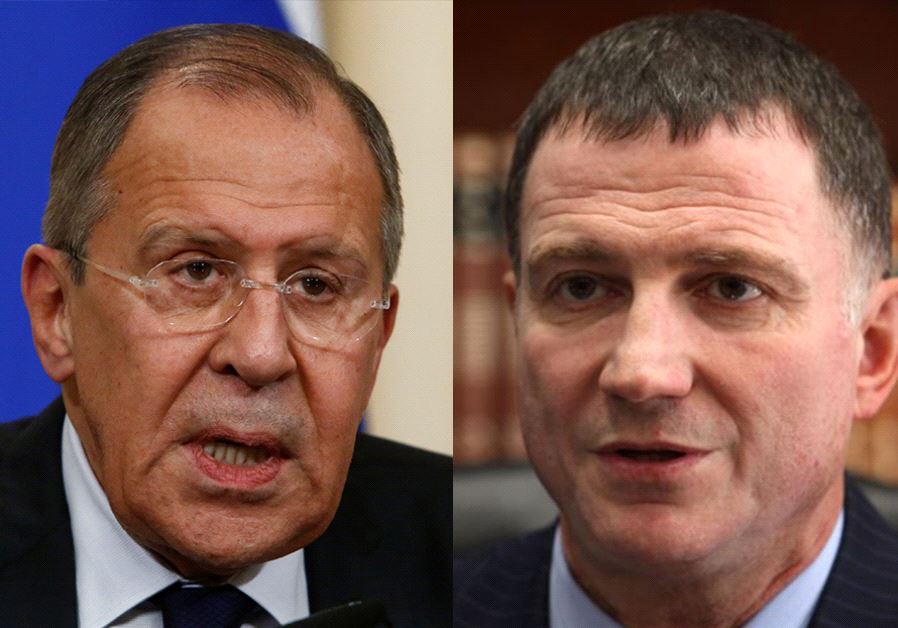Israel to Russia: We're concerned your tensions with the US might endanger our border
Knesset Speaker Yuli Edelstein talks to Russian Foreign Minister Sergei Lavrov about Syria, Iran, captives in Gaza.
 (photo credit: REUTERS,MARC ISRAEL SELLEM)Updated:
(photo credit: REUTERS,MARC ISRAEL SELLEM)Updated: